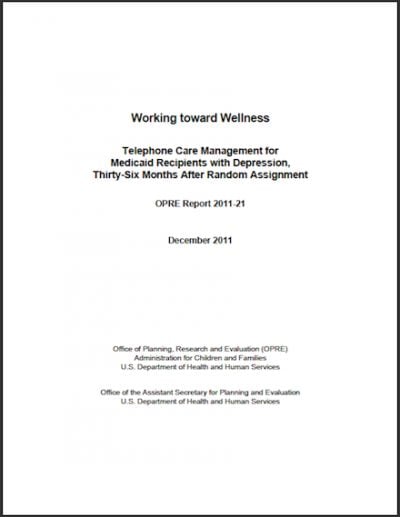Study Goals
This study had 2 main objectives: 1) determine if a telephone care management model could help low-income parents get treatment; and 2) gauge if this approach worked to alleviate depression and increase employment and earnings.

This report examines a telephone care management program called Working Toward Wellness, which served depressed parents receiving Medicaid in Rhode Island. The 1-year program, which was active from 2004 to 2006, involved clinicians calling participants and encouraging them to seek out and sustain needed mental health care. Readers will learn about the intervention’s impact and discover if these parents were still benefiting from the program 2 years later.
The telephone-based program was rooted in a simple premise: If you encourage parents to seek treatment and alleviate their depression, they will be more likely to return to work or become more productive in their current jobs. This study, which revisits program participants 2 years post-intervention, shows how this simple premise didn’t pan out.
We hope you'll find value in this report. We’d love to get a little information from you, which we'll use to notify you about relevant new resources.